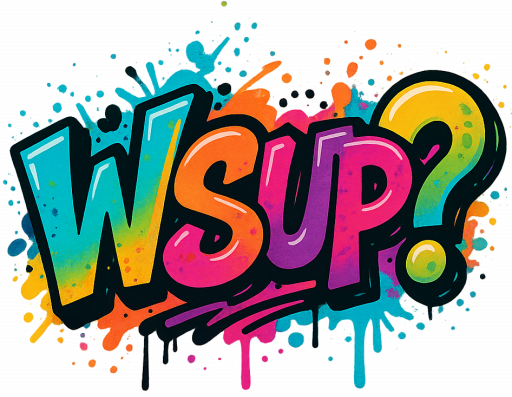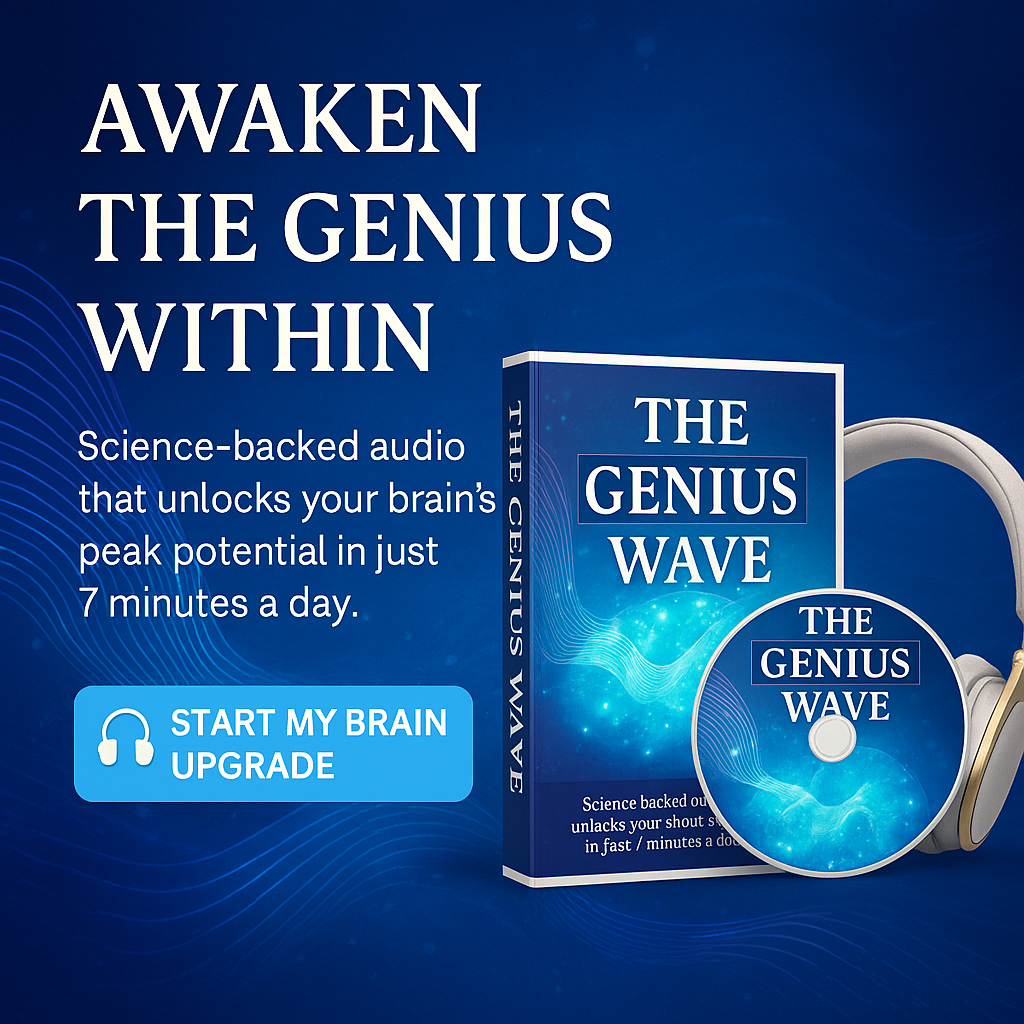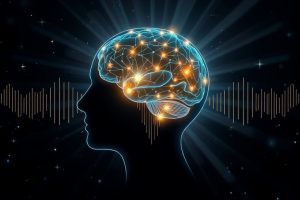Understanding the Concept of the “Genius Wave”: What Is It?
The term “genius wave” refers to a purported phenomenon where specific brainwave patterns are associated with heightened creative thinking, problem-solving, and cognitive performance. Originating from popular science and self-improvement circles, the concept suggests that by inducing certain brainwave states, individuals can unlock their full creative potential. Claims often include promises of enhanced inspiration, improved focus, and accelerated idea generation through techniques like brainwave entrainment or specialized audio tracks.
The idea of “waves” relates directly to the brain’s electrical activity, which fluctuates in different frequency ranges. Advocates suggest that these “waves” can be synchronized or stimulated to produce desired mental states, akin to riding a wave of heightened mental clarity or creativity. This analogy ties into the broader concept of brainwave frequencies and their influence on cognition, mood, and consciousness.
The Scientific Basis Behind Brainwaves and Creativity
Our brains generate electrical signals that can be categorized into distinct types of brainwaves: delta, theta, alpha, beta, and gamma. Each type corresponds to different states of consciousness and mental activity. For example:
- Delta waves: Deep sleep
- Theta waves: Light sleep, relaxation, and meditation
- Alpha waves: Calm, restful alertness, often linked to relaxed focus
- Beta waves: Active thinking, problem-solving, and active concentration
- Gamma waves: High-level information processing and cognitive functioning
Research has shown that certain brainwave patterns, particularly alpha and theta waves, are associated with creative states. For instance, increased alpha activity is often observed during relaxed, meditative states conducive to insight and idea generation. However, the scientific community remains cautious about claims that artificially inducing these waves can reliably boost creativity.
Regarding brainwave stimulation methods, such as neurofeedback or auditory entrainment, the scientific support is mixed. While some studies suggest potential benefits, the evidence is not yet conclusive enough to confirm that these techniques can reliably produce significant cognitive enhancements.
How Does the “Genius Wave” Claim to Enhance Creativity?
Proponents of the “genius wave” often cite mechanisms like brainwave entrainment—using rhythmic stimuli such as binaural beats or specific audio tracks—to synchronize brain activity into desired states. Meditation and mindfulness practices are also promoted as natural ways to induce similar brainwave patterns associated with creativity and relaxation.
From a neurological perspective, the idea is that by guiding the brain into certain frequencies, individuals can access more creative or insightful mental states. However, the scientific evidence supporting the existence of a distinct “genius wave” remains limited. While techniques like is the genius wave mood relaxation audio scientifically proven and safe have been explored, their efficacy in producing a “genius wave” is still under investigation.
Known methods that aim to produce similar brainwave states include meditation, neurofeedback, and certain forms of biofeedback. These practices have demonstrated some benefits for mental clarity and relaxation but are not universally proven to induce a specific “genius” state.
Evaluating the Effectiveness of the Genius Wave for Creative Enhancement
Scientific research into brainwave stimulation and its impact on creativity is ongoing. While some peer-reviewed studies report modest improvements in mood, focus, or relaxation, there is limited evidence to support the idea that inducing a particular “genius wave” can reliably enhance creative output. Many claims are based on anecdotal reports or marketing hype rather than rigorous scientific validation.
It is essential to distinguish between scientifically supported techniques—such as meditation and neurofeedback—and unproven claims that promise quick fixes. Currently, there is no conclusive evidence that the “genius wave” as a specific phenomenon exists or that it can be reliably harnessed to boost creativity.
Safety, Risks, and Ethical Considerations of Using Brainwave Techniques
While many brainwave entrainment devices and methods are marketed as safe, potential side effects include headaches, dizziness, or discomfort, especially if used improperly or excessively. It is crucial to approach these techniques with caution and consult healthcare professionals before beginning any new cognitive enhancement regimen.
Ethical considerations also arise regarding the use of brain stimulation for cognitive enhancement, particularly in competitive environments or vulnerable populations. Ensuring safety and informed consent is paramount when exploring such methods.
For those interested, reviewing resources like is the genius wave mood relaxation audio scientifically proven and safe can provide guidance on the safety and scientific backing of specific audio-based brainwave techniques.
Credibility of Sources Promoting the “Genius Wave” Technology
Many marketing claims surrounding the “genius wave” are not backed by rigorous scientific research. While some companies cite studies or testimonials, these often lack peer-reviewed validation or independent replication. Recognizing reputable sources involves looking for evidence from academic research, clinical trials, and expert opinions.
Warning signs of unsubstantiated claims include exaggerated promises, lack of scientific references, and reliance on anecdotal evidence. Critical evaluation of sources is essential to avoid falling for pseudoscience or misleading marketing.
Practical Ways to Access or Induce Creative Brain States Safely
Evidence-based methods to enhance creativity include practices like meditation, mindfulness, and neurofeedback, which have demonstrated some benefits without significant risks. These techniques can be integrated into daily routines to promote mental clarity and inspiration.
Compared to “genius wave” techniques, these methods are generally better supported by scientific research and are safer for most individuals. For example, regular meditation can improve focus and reduce stress, indirectly fostering a more conducive environment for creative thinking.
To incorporate these practices, start with simple mindfulness exercises, explore guided meditations, or seek professional neurofeedback sessions if appropriate. These approaches offer a practical and scientifically supported way to boost your creative potential.
How the Genius Wave Compares to Other Cognitive Enhancement Techniques
Brainwave entrainment is just one of many methods aimed at improving cognitive function. Others include brainstorming sessions, cognitive training apps, and physical activities that stimulate brain health. Each approach has its pros and cons:
- Brainwave entrainment: Potentially effective but with limited scientific consensus
- Brainstorming and idea generation techniques: Proven to stimulate creativity through social and cognitive processes
- Cognitive training: Can improve specific skills but varies in effectiveness
Combining these methods—such as practicing meditation alongside brainstorming—may yield better results than relying solely on one technique. The key is to adopt a balanced approach grounded in scientific evidence.
What This Means for You: Making Informed Decisions About Creativity Boosting Methods
When exploring new cognitive enhancement tools, critical thinking is essential. Evaluate claims carefully, seek out scientific validation, and prioritize safety. Not all methods marketed as quick fixes are effective or safe.
Practical advice includes focusing on proven strategies like regular meditation, maintaining a healthy lifestyle, and engaging in creative exercises. These approaches have a solid foundation in scientific research and are more likely to produce sustainable benefits.
Final Thoughts: Is the “Genius Wave” Science or Hype?
In summary, while the concept of a “genius wave” is intriguing, current scientific evidence does not conclusively support its existence or effectiveness. Many claims remain speculative or exaggerated, and more research is needed to validate these techniques fully.
For those interested in enhancing creativity, it is advisable to rely on evidence-based practices such as meditation, neurofeedback, and mindful brainstorming. These methods are supported by scientific research and are generally safe when used appropriately. As always, approaching new cognitive tools with a critical eye ensures you make informed decisions that truly benefit your mental performance.




